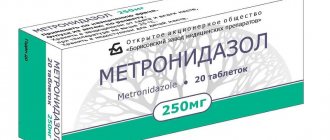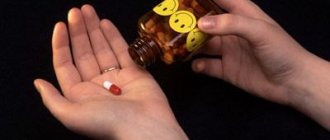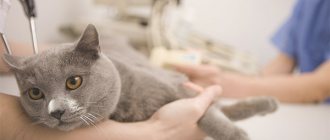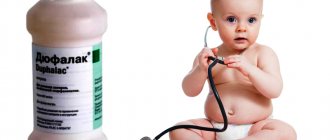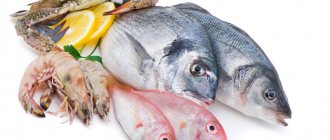Diseases of the digestive system do not have the best effect on the health of pets. This especially applies to inflammatory processes. Gastroenteritis also falls into this category. In cats, this word implies a disease in which the stomach and small intestines become inflamed. Pathology is caused by various negative environmental factors. It is not transmitted to humans, so you do not have to worry about your health.
In addition, pathology can be a response to medications or even new foods. A cat with this disease suffers from abdominal pain, severe and debilitating diarrhea, and other symptoms of indigestion.
Risk group, routes of transmission and causes of coronavirus infection
There are several different strains of coronaviruses around the world, but only two are found in cats:
- CCVC or enteric coronavirus (FECV) does not cause significant harm to the animal’s body.
- FIPV or coronavirus peritonitis (FIPV) - can lead to the death of a pet and causes severe pain.
The pathogen enters the pet’s body through the respiratory system. It is found in feces, saliva, and on objects used. In almost 100% of cases, small kittens become infected during childbirth from a sick mother.
The causes and factors for the development of the disease include the animal’s reduced immunity, stressful situations, age (kittens and old cats are most susceptible), and heredity.
One of the causes of animal illness is stress.
What is the problem: reasons
The FCoV virus, which often mutates, can provoke coronavirus gastroenteritis. Carriage of parnovirus or hepatitis also influences the progression of pathology.
In pets, the gastrointestinal tract suffers from an unbalanced diet. There are the following causes of gastroenteritis in cats:
- Incorrectly selected food and other food products. Poor quality food, spicy, hard or salty food provokes an inflammatory reaction in the internal organ of the animal.
- Hearty food.
- Negative effects of heavy metal salts entering the body of cats through food intake.
- Allergic reaction to food.
- Treatment of a pet with pharmaceutical drugs. With long-term use of antibacterial agents, the gastric mucosa is irritated and gastroenteritis occurs in the cat.
Often a pet gets sick due to salmonella entering the body.
In pets, gastroenteritis can be a consequence of hairballs entering the gastrointestinal tract. Also, liver pathology becomes a source of the problem. Inflammation may occur against the background of pancreatitis or intestinal obstruction. According to statistics, an inflammatory reaction in the area of the stomach and small intestine is more often caused by viral and bacterial infections, such as:
- salmonella;
- coli;
- various helminths, in particular isospores, coccidia.
Symptoms of coronavirus in a cat
Symptoms of the disease directly depend on what strain has entered the cat’s body and how long the disease lasts.
CCVC or enteritis is manifested by severe diarrhea, which does not stop until 4 days. The cat is vomiting and refusing to eat. Pets suffering from this form of the disease recover 4-5 days after the first symptoms appear.
FIPV or infectious peritonitis caused by a strain of the VIPK group can occur in two forms: dry and wet.
They manifest themselves with the following symptoms:
- decreased appetite and weight loss;
- fever up to 41-41.2 degrees;
- severe diarrhea and vomiting;
- conjunctivitis and nasal discharge;
- anemia (anemia).
The wet form is characterized by the development of ascites (accumulation of fluid in the abdominal or pleural cavity). In dry FIP there is no such symptom.
A cat sick with coronavirus refuses to eat and its temperature rises
Drug therapy
You can use immunocorrectors and anti-inflammatory medications in treatment:
- 1. Glycopene. The active substance, available in tablet form, is obtained from bacterial cells. Used to inhibit pathogenic bacteria and viruses.
- 2. Canine Globcan-5 - alleviates the course of the disease, contains antibodies against the causative agent of coronovirus infection.
- 3. Likopid - tablets with a bactericidal effect.
- 4. Roncoleukin - a drug produced from baker's yeast. Designed for hypodermal and intravenous infections. The medicine is immunostimulating, protects against viruses, pathogenic bacteria and fungi, relieves stress.
- 5. Polyferrin-A is an iron-containing glycoprotein that is isolated from colostrum. Increases immunity, has anti-inflammatory properties, prevents the development of pathogenic viruses and bacteria, fungi. Available in the form of injections.
Methods of diagnosis and treatment of a dangerous disease
The most effective method for detecting coronavirus infection is the latest and new test called VetExpert. With its help, you can identify not only sick animals, but also latent carriers.
The second method is PCR, which stands for polymerase chain reaction. This method, like the VetExpert test, requires fresh pet feces.
The most accurate diagnostic method is considered to be a blood test using the ELISA method.
Coronavirus infection caused by a strain of the VIPK group cannot be treated and always ends in death. All actions are aimed at alleviating the pet’s condition. In the case of a wet form, the accumulated fluid is pumped out of the abdominal cavity. Antibiotics and corticosteroids are also used to suppress symptoms.
Not all strains of coronavirus can be cured
Blood in cat stool
Anna
82 views
August 19, 2020
Good afternoon We need an alternative opinion on the issue of searching for the causes of a cat’s illness. The cat is young, as of August 19, 2020, he is 1.4 years old, of the Bengal breed, taken from the nursery at the age of 3.5 months. and was neutered by the breeder 2 days before the move, dewormed a month (with the drug Fenpraz). A film of blood (bright, red) was found in the stool at the end, the stool was not fully formed, and she always goes to the toilet regularly once a day. The cat is active, healthy-looking, and has a good appetite. The nursery said there might be problems due to a change in food (they fed Monge, switched to Grindorf for kittens). At the veterinary clinic they said to deworm it and switch to Vetlife Gastrointrstinal - they tried both dry and canned - the result was the same, streaks of blood in the stool. The nursery said to inject Rankoleukin, a course subcutaneously. Blood began to appear less frequently, 1-2 times a week. At the age of 10 months, the cat (4.9 kg) was wormed before being vaccinated against rabies (Nobivac) and then vaccinated against panleukopenia, chlamydia and viral rhinotracheitis (Nobivac Tricat Trio). They also did an ultrasound of all abdominal organs - they found nothing. The bleeding continued occasionally, and the cat began to shed more heavily. In May (one year old cat, 5.1 kg) they tested for giardiasis (smear) - negative, then they tested for toxoplasmosis (negative), panleukopenia (detected), coronavirus (detected). Trichopolum (1/4 tablet 2 times a day) and Globfel (subcutaneous 4 doses) were prescribed. Panleukopenia was cured, but coronavirus was still detected. We were tested for the coronavirus titer, it was 1:800 and 1:400, it said there was a contact, maybe a carrier, but no more. Ultrasound is clear. The blood in stool from Trichopolum completely disappears, but a week after stopping Trichopolum there is a drop of blood again. We tried giving Trichopolum for a month - the stool was excellent, after a week without Trichopolum - there was a streak of blood in the stool (bright red at the end). At the paid clinic they say the coronavirus is in a dry form, but here it is not losing weight, it is active. Another doctor from the state veterinary clinic said that it was definitely not coronavirus and that we should look for protozoa/microbes. At the same time, they switched him to Orijen Tunda food (they thought since the reason was not in the pancreas, they should start feeding him good food, suddenly shedding due to a lack of microelements in the dietary food), he switched over well. Dewormed with two courses 04.08.-6.08. and 11.08.-13.08.2020 (Fenpraz, tablets). While taking the drug for deworming, there is no blood, it disappears (checked carefully). 08/18/2020 - submitted stool for PCR analysis for parasitic diseases and stool microscopy. Results (Invitro laboratory) - parasitological study (helminth eggs, cysts, vegetative forms were not found), PCR (tritrichomonas blagburni foetus) - not detected, Giardia Lamblia spp. - not detected, Cryptosporidium spp. - not detected. We are going to go to the veterinary clinic to ask for another ultrasound and a general blood test - after all, it should show the inflammatory process. I would like to note that throughout the entire period the cat was active, very active, with a good appetite. The only signs of the disease are streaks of blood in the stool and molting. We ask for help in saving the cat - what else can we check, what else may be the cause of his illness. Thank you very much in advance!
Age:
29
The question is closed
young cat bleeding
Prevention and vaccine
The only effective measure to prevent coronavirus infection is vaccination with a drug called Primucell FIP according to the scheme. It is instilled into the animal's nose.
Here are other preventive measures that will reduce the risk of your pet becoming infected with coronavirus:
- If cats live in crowded conditions (this applies to nurseries or shelters), all premises and objects of use are regularly treated with a solution of ammonia (the ratio of the drug to water is 1 to 32).
- All adult breeders are periodically tested for virus carriage using the VetExpert test.
- The animal's diet must be completely balanced.
- It is worth excluding your pet from walking on the street, especially for residents of megacities (many infected animals live in the courtyards of residential buildings and spread the coronavirus virus).
Even the owner can carry the FIP pathogen into the house on his shoes or clothes.
Pets with strong immunity are able to cope with the virus on their own. If the cat is weakened by another disease, the likelihood of active reproduction of the pathogen in its body increases significantly.
To prevent your pet from getting sick, you need to vaccinate it on time.
How is gastroenteritis treated?
This disease does not belong to the category of lungs, and therefore only a veterinarian must draw up a plan of therapeutic measures. The basic treatment is quite simple: you need to restore the water and electrolyte balance in the animal’s blood. This is especially important if gastroenteritis is treated in kittens, which without adequate therapy will simply die in just a couple of days. The method of administration of drugs depends on the degree of dehydration: orally or intravenously. Until the animal’s condition improves, it is advisable to keep it on a starvation diet, maintaining its vital functions through intravenous infusions.
Can the disease be transmitted to humans?
Coronavirus is not transmitted to humans or to dogs or other pets.
This disease is only dangerous for cats. Therefore, if your pet is sick, you can communicate with him without fear and carry out all the necessary manipulations.
Coronavirus infection is a deadly disease. It can be asymptomatic, but the cat is still a source of infection. Keeping your pet in clean rooms and avoiding contact with stray animals will slightly reduce the risk of infection, but you should remember that the virus is dangerous even for those cats that do not go outside.


